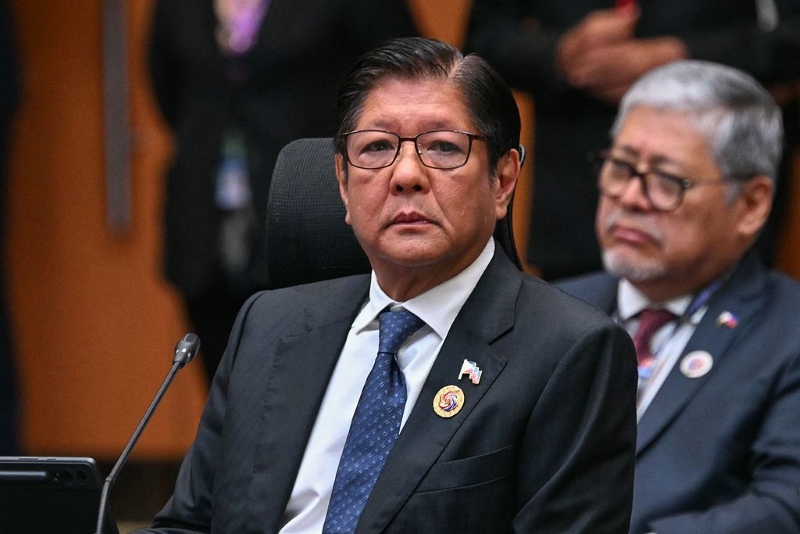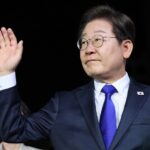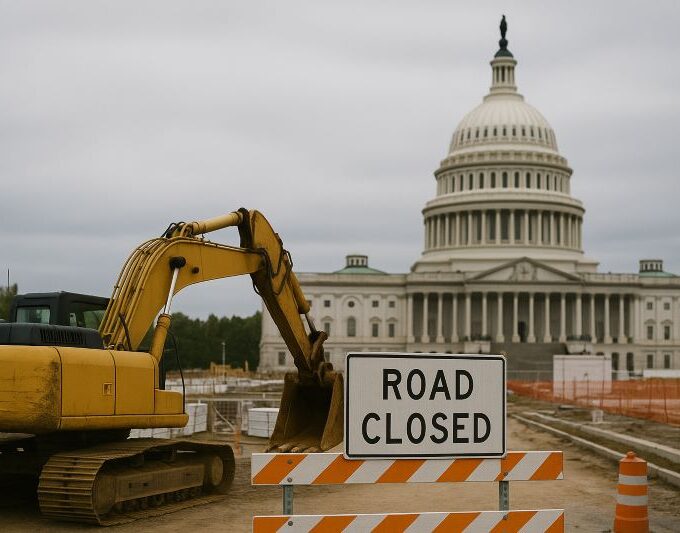In the Philippines, political dynasties operate much like established commercial brands—well-known family names are passed down through generations to gain public trust, build social influence, and maintain dominance in the political arena. Over the past 40 years, these entrenched families have expanded their reach, forming complex networks of vested interests and creating a generational cycle of political control.
According to Filipino scholars, political families are categorized into three levels: “thin,” “fat,” and “obese.” A “thin” dynasty controls one elected position over a long period. A “fat” dynasty holds two or more government posts. The “obese” dynasties—super political clans—have five or more elected members in office.
The latest data from the Philippine Center for Investigative Journalism (PCIJ) shows that in the May midterm elections, 71 out of the 82 winning governors belonged to political dynasties. The country now has 18 “obese” dynasties.
What impact do these “obese” dynasties have on the Philippines? How has the political landscape shifted after the midterm elections? Where are these dynasties currently concentrated? And how is the public responding to the current state of political affairs?
In the Next Three Years, Political Power Remains in the Hands of Major Clans
The Philippine midterm elections held on May 12 were seen as a political earthquake, triggering a major reshuffle of power blocs. The election covered 12 Senate seats, 317 House of Representatives seats, and over 18,000 local government positions. After three years of political suppression by the Marcos administration, the Duterte camp made a strong comeback, securing 5 of the 12 newly contested Senate seats. In contrast, the “New Philippines Alliance” formed by President Marcos—previously expected to win at least 7 to 8 seats—only managed to claim 5. The remaining 2 seats went to other parties.
According to the PCIJ, regardless of the shifts in this midterm election, there are still 18 “obese” political dynasties—each with at least five elected officials. This means that until the 2028 presidential election, the country’s political landscape will remain firmly in the grip of powerful political families.
Before the midterm elections began, the Philippine political scene was already in turmoil. In February, the House of Representatives—led by Speaker Martin Romualdez, a cousin of President Marcos—approved an impeachment case against Vice President Sara Duterte, the eldest daughter of former President Rodrigo Duterte. On March 11, the current administration cooperated with the International Criminal Court (ICC) to have Duterte sent to The Hague for trial. This move sparked nationwide protests, and subsequent polls showed a steady rise in public support for the Duterte family.
Despite being detained in The Hague, Duterte was overwhelmingly elected mayor of Davao City in the midterm elections. His youngest son, Sebastian, won the vice mayor seat, and his eldest son, Paolo, was re-elected to the House of Representatives. Discussions are ongoing in the Philippines about whether Duterte can be sworn in while in custody.
In contrast, the Marcos family’s performance in the election was less favorable. While Marcos’s cousin Martin Romualdez and son Sandro Marcos were re-elected, and his sister Imee Marcos secured another Senate term, Imee publicly withdrew from the “New Philippines Alliance” before the election. Instead, she aligned herself with the Duterte camp and received Sara Duterte’s endorsement. Recently, Imee accompanied Sara to The Hague to visit Duterte.
Adding to the Marcos camp’s challenges, Martin Romualdez has faced intense public criticism over allegations of corruption during the previous budget cycle, leading to a sharp drop in his approval ratings. Many believe he has no viable political future after his term ends in 2028. Sandro, on the other hand, is seen as too inexperienced to carry the political weight of the Marcos clan. Some political analysts in the Philippines suggest that by 2028, the Marcos family may have no clear standard-bearer and could retreat to their home province of Ilocos Norte.
The outcome of the midterm elections has also introduced more uncertainty into the impeachment proceedings against Sara Duterte. Following the election shake-up, the Senate’s stance shifted. Senate President Chiz Escudero first postponed the hearing from June 2 to June 11, then stated that the final decision would rest with the newly formed Congress.
According to Philippine broadcaster GMA, the 20th Congress will convene on July 28. Under the Philippine Constitution, impeaching a vice president requires at least 16 votes from the 24-member Senate. Currently, the Marcos bloc holds 14 votes—two short of the threshold. Media analysis suggests that at least 10 senators are opposed to the impeachment, making it highly unlikely that the motion against Sara will pass.
Even if the impeachment succeeds and prevents Sara from running in the 2028 presidential race, the Duterte camp could swiftly nominate a replacement from within their ranks.
Meanwhile, Western media outlets like the Associated Press and BBC have noted the resurgence of the Liberal Party, which had been sidelined after its defeat in 2022. Now led by Bam Aquino, the party is staging a comeback and could emerge as a viable “third force” in the 2028 presidential election. Given the Liberal Party’s long-standing opposition to both the Marcos and Duterte camps, this could further complicate the already intense political rivalry in the Philippines.
In Philippine Politics, Your Last Name Matters More Than Your Policies
There’s a common saying in the Philippines: in politics, your last name often matters more than your policy positions. The country’s dynastic politics date back to the colonial era. Spanish colonizers, for easier governance, turned local chieftains known as datus into hereditary officials, creating a native elite class. During the first half of the 20th century, the Philippines was colonized by the United States. After gaining independence in 1946, the country adopted a U.S.-style presidential system with a bicameral Congress: 24 seats in the Senate and 317 in the House of Representatives. Both the president and lawmakers are elected by direct popular vote.
In practice, however, presidents, lawmakers, and provincial or city mayors wield massive political and economic influence. They use patronage and resource distribution to sway public opinion and maintain long-term control over political ecosystems, from entire provinces down to small towns. In every election—whether national or midterm—regardless of who sits in the presidency or which party controls Congress, political dynasties continue to dominate key positions at the local level. This entrenched power structure is widely known as Philippine-style “clan politics.”
It’s estimated that over 160 influential political families currently control economic and political life in various provinces or cities.
According to the Philippine Center for Investigative Journalism (PCIJ), many dynasties drew public attention during this election, with the Singson family, led by Chavit Singson, once again in the spotlight for fielding the largest number of candidates. Although Chavit withdrew from the Senate race in January due to health reasons, 27 of his family members ran for various positions—including seats in Congress, governor, and mayor.
The results show the Singson family secured more than a dozen posts, including governor and vice governor of Ilocos Sur, a small northern province on Luzon island with a population of around 700,000. Since Chavit was first elected governor in 1971, the province has remained under his family’s control.
Still, this election doesn’t fully reflect the Singson family’s real power. In the 2022 national elections, they allied with the Marcoses from nearby Ilocos Norte, mobilizing voters across both provinces in support of Ferdinand Marcos Jr., helping solidify his base on Luzon.
Media reports noted that during the campaign, Chavit Singson personally accompanied Marcos on his private jet to campaign rallies and helped fund the effort. However, after Marcos took office in June 2022, Chavit did not receive a cabinet position in return, and relations between the two families have reportedly cooled.
Other dynasties also had strong showings, with some family members seen as potential contenders for the 2028 presidential election. The Tulfo family, for instance, is gaining momentum. Former congressman Erwin Tulfo won a Senate seat and will now serve alongside his brother, popular broadcaster-turned-senator Raffy Tulfo. Their other brother, Ben Tulfo, failed to win election. Some analysts believe the Marcos camp may place its hopes for 2028 on the Tulfo brothers—especially Raffy, whose popularity makes him an appealing successor. However, questions remain about his eligibility, as he was born in the United States. As early as June 2022, Marcos began building ties with the Tulfos, nominating Erwin as Secretary of Social Welfare. Still, some observers doubt the Tulfos, known for their sharp, pragmatic style, would remain loyal to the Marcoses if one of them wins the presidency.
Meanwhile, Camille Villar—daughter of real estate tycoon Manuel “Manny” Villar—won a Senate seat in this election and will now serve alongside her brother, Mark Villar. Their mother, Cynthia Villar, completed her Senate term and ran for a House seat, but ultimately lost. Though once aligned with the Marcos bloc, Camille Villar broke ranks over the Marcos administration’s decision to hand Duterte over to the ICC and joined the Duterte camp. It remains to be seen whether the Villar family will become a key new ally for the Dutertes moving forward.
“You Don’t Legislate Against Your Own Interests”
Despite long-standing awareness of the dangers posed by political dynasties, the 1987 Philippine Constitution explicitly prohibits their existence. As early as the 1980s, civil society had already been calling for laws to curb dynastic control of politics. However, in recent years, multiple related bills have repeatedly failed to pass congressional review. As Pancho, a professor at Ateneo de Davao University, put it: “In political science, there’s a saying—you don’t legislate against your own interests.”
Current Philippine law does attempt to limit dynastic overreach. For example, the president serves a single six-year term with no re-election. The vice president may serve up to two terms. Members of Congress, governors, and mayors are elected every three years, with a maximum of three consecutive terms. But in practice, political clans game the system—family members take turns running for different positions, allowing the family to maintain continuous control over key posts.
These local dynasties typically maintain strategic alliances with major national political families to protect their interests regardless of who holds the presidency. For instance, a former governor from Mindanao—now a senior figure in Sara Duterte’s political party—has a cousin who is a longtime friend and cabinet member of President Marcos, and another relative who is aligned with the Aquino family.
According to a recent survey by polling firm WR Numero, cited by the SunStar newspaper, one in two Filipinos believe that officials from political dynasties are more likely to be corrupt. Only 16% of respondents disagreed, while 31% were undecided. University of the Philippines political science professor Maria Atienza attributes the power of political families to weak institutions and the absence of effective governance.
Research from Ateneo de Manila University shows that nearly 80% of members of Congress and more than half of elected local officials come from political dynasties. These families significantly impact the country’s ability to implement checks and balances and drive meaningful economic development. SunStar notes that since 2001, all four elected Philippine presidents have come from political dynasties—Gloria Macapagal-Arroyo, Benigno Aquino III, Rodrigo Duterte, and Ferdinand Romualdez Marcos—who have profoundly shaped the nation’s 21st-century politics.
In this election, some candidates—such as newly elected Senator Panfilo Lacson—have once again pledged to prioritize anti-dynasty legislation. The proposed bill would ban members of the same family from simultaneously or consecutively holding office in the same jurisdiction. For instance, it would prohibit parents, children, or siblings from holding the positions of governor, mayor, or lawmaker in the same area at the same time. Violators would be disqualified from running.
Some believe the growing influence of younger voters could shift the direction of Philippine politics. According to GMA News, in this midterm election, voters aged 18 to 44 accounted for 63% of the voting-age population and 68% of registered voters. This demographic is more focused on jobs, education, and government accountability, and reflects increasing dissatisfaction with traditional political camps.
The PCIJ reports that the Supreme Court has already received at least two petitions urging Congress to enact a political dynasty ban. Some newly elected lawmakers have pledged support for such a bill. While reform advocates say there are signs of progress, many political analysts remain cautious, arguing the situation must be viewed through a realist lens.













Leave a comment